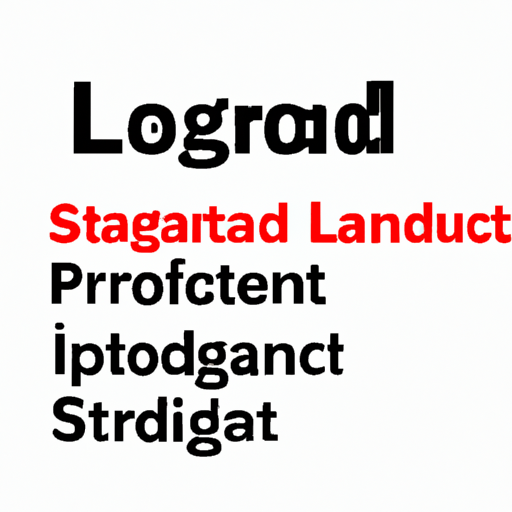Title: Product Standards for Logic: Ensuring Quality and Reliability

1. Definition and Importance of Product Standards (200 words) Product standards are a set of guidelines and specifications that define the quality, safety, and performance requirements for a particular product or industry. These standards are developed by regulatory bodies, industry associations, and experts to ensure consistency, interoperability, and reliability across different products and manufacturers.
In the context of logic, product standards are essential to guarantee the accuracy and dependability of logical systems. They provide a framework for manufacturers to follow during the design, development, and production phases, ensuring that logic-based products meet specific criteria and perform as intended. By adhering to these standards, manufacturers can enhance customer satisfaction, reduce risks, and foster innovation in logic-based technologies.
2. Key Components of Logic Product Standards (300 words) Logic product standards encompass various aspects, including design, manufacturing, testing, and documentation. Let's explore some of the key components in detail:
2.1 Design Standards: Design standards outline the requirements for logical system architecture, circuit design, and component selection. They ensure that the logical system is robust, efficient, and capable of performing the intended functions accurately. Design standards may also cover aspects such as power consumption, signal integrity, and noise reduction.
2.2 Manufacturing Standards: Manufacturing standards focus on the production processes, materials, and quality control measures. They define the procedures for assembling logic-based products, including component placement, soldering, and testing. These standards also address issues like environmental sustainability, waste management, and worker safety.
2.3 Testing Standards: Testing standards are crucial for verifying the functionality and reliability of logic-based products. They specify the test procedures, methodologies, and acceptance criteria to ensure that the products meet the desired performance levels. Testing standards may include functional testing, stress testing, environmental testing, and electromagnetic compatibility (EMC) testing.
2.4 Documentation Standards: Documentation standards govern the information that manufacturers must provide to users, including user manuals, technical specifications, and safety instructions. These standards ensure that the documentation is clear, comprehensive, and easily understandable, enabling users to operate the logic-based products safely and effectively.
3. Impact of Logic Product Standards (400 words) The implementation of product standards for logic has a significant impact on various industries and applications. Let's explore some of the key areas where these standards play a crucial role:
3.1 Electronics Industry: In the electronics industry, logic product standards ensure the interoperability and compatibility of different electronic components and systems. These standards enable seamless integration of logic-based products, such as microprocessors, memory chips, and programmable logic devices, into electronic devices and systems. They also facilitate the development of standardized interfaces and protocols, promoting innovation and reducing time-to-market for new electronic products.
3.2 Computer Science and Software Development: Logic product standards are vital in computer science and software development, particularly in the field of programming languages and compilers. These standards define the syntax, semantics, and behavior of programming languages, ensuring consistency and portability across different platforms and implementations. By adhering to these standards, software developers can write reliable and maintainable code, enhancing software quality and reducing compatibility issues.
3.3 Artificial Intelligence (AI) and Machine Learning: In the rapidly evolving field of AI and machine learning, logic product standards are crucial for ensuring the accuracy and fairness of AI algorithms and models. These standards address issues like bias, transparency, and interpretability, promoting ethical and responsible AI development. By following these standards, AI developers can build trustworthy and accountable AI systems that respect privacy, security, and human values.
3.4 Safety-Critical Systems: Logic product standards are of utmost importance in safety-critical systems, such as aerospace, automotive, and medical devices. These standards ensure that the logical systems in these applications meet stringent safety and reliability requirements. By adhering to these standards, manufacturers can minimize the risks associated with system failures, ensuring the safety of users and the environment.
Conclusion (100 words) Product standards for logic are essential for ensuring the quality, reliability, and safety of logic-based products across various industries. These standards provide a framework for manufacturers to follow during the design, manufacturing, testing, and documentation phases. By adhering to these standards, manufacturers can enhance customer satisfaction, foster innovation, and minimize risks. As logic continues to play a vital role in advancing technology, the development and implementation of robust product standards will remain crucial to meet the evolving needs of industries and society as a whole.









